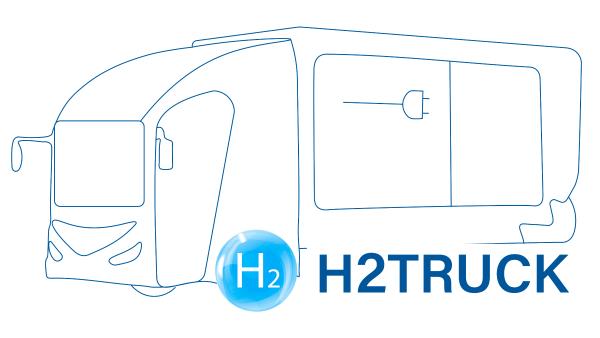News
FCC Medio Ambiente obtains European Funds for the Project H2TRUCK: a vehicle with Battery-Hydrogen Fuel Cell Hybrid Technology
- H2TRUCK aims to develop a heavy-duty chassis-platform with 100%-electric propulsion powered by a hydrogen cell and lithium-ion battery hybrid system. In addition, a mobile hydrogen compression station will be developed.

FCC Medio Ambiente has been granted funds for the development of the project “Research and Development of a new heavy-duty vehicle for urban service applications with battery-hydrogen fuel cell hybrid technology” within the PTAS programme (Sustainable Automotive Technology Programme) in the framework of the funds granted by the Centre for Industrial Technological Development (CDTI) supported by the Ministry of Science and Innovation within the Spain’s Recovery, Transformation and Resilience Plan financed by the European Union.
H2TRUCK has an eligible expenditure of over €5.5 million and is being developed by a consortium led by FCC Medio Ambiente and formed by prestigious companies, such as Irizar, Jema and Calvera, and complemented by important public research bodies (PRBs) such as Insia, Tecnalia, Cidetec and the National Hydrogen Centre. It must be completed by December 2023, with a possible six-month extension.
This project follows the innovative R&D line of the multi-award-winning 100%-electric chassis-platform project for urban service vehicles that FCC Medio Ambiente presented in 2018 and which already has two ie urban truck collector-compactor prototypes, one side-loading and another rear-loading, and which currently has more than 10 units in the Irizar production line.
The specific aim is to manufacture a prototype waste collection vehicle on a heavy-duty chassis-platform with 100%-electric propulsion powered by a hydrogen cell and lithium-ion battery hybrid system that is completely environmentally friendly, with the ambitious objective that in the future this hybrid chassis can be applied to any equipment or machine that provides urban services, regardless of the number and layout of axles or the bodywork installed on it. Additionally, a mobile hydrogen-compression station will be developed thus allowing the prototype vehicle to be refuelled anywhere and therefore to be able to work and be tested at any location.









